Charis
[care-is] noun
1. Grace 2. Favor 3. Kindness
Charis is a word that is used for both giving and receiving. All of us, at Charis Loans, are both aware and thankful that we’ve been given grace, favor, and kindness throughout our lives. Our mission is to put those qualities into our work and give all of our clients an experience equal to our name. We appreciate the opportunity to serve you for such an important part of your life.
PURCHASING
Like with many areas in life, proper preparation is key when getting a new loan, especially when you're looking to buy a home. Mortgage lending has evolved quite a bit over the last several years and it doesn't appear that will change any time soon. However, some of the basic elements of the loan process are still the same and it will help your overall experience to be ready for them. The most important of these is getting all of your documentation together.
1. Every lender will need the following...
- Last 2 years of Federal Tax Returns
- Last 2 months of Paystubs (preferably with a year to date figure)
- Last 2 months of Bank Statements (all pages)
- Any other Financial Account Statements
- An Authorization to run your credit
- Legible copy of Driver's License & Social Security Card
- Rental Agreements for any rental properties owned
2. STRUCTURE
- Is it better for you to have an FHA loan or put 5% down and get a conforming loan?
- Why would you want a Jumbo loan that's not a 30 year fixed?
- Can you do a loan with a 580 credit score?
The good news is that our experienced Loan Officers can help you through the process and answer questions like these. At Charis Loans, Inc. we have a full array of mortgage products to offer and are not constrained by only being able to offer one bank's programs. Some banks specialize in smaller, "conforming loans", while others specialize in "jumbos". We know who those specialists are, for any type of normal loan or niche product, and can offer them to you. A direct lender doesn't have that type of flexibility. That is how we can maintain a competitive advantage, for you, in all different types of markets.
3. PRE-APPROVAL
4. ESCROW
5. FUNDING
REFINANCING
FIRST CONSIDER:
Lower interest rates can sound very tempting. However, as part of good financial planning, you should consider whether it makes sense to refinance your current mortgage when factoring in the closing costs of the new loan. Be diligent in looking at your budget. The costs of the new loan might not make it worth it, if you end up selling too soon afterwards or if you are lengthening the term of your loan.
Also, don't be surprised if your new mortgage carries most of the same costs as your initial purchase loan did.
SOME OF THESE COSTS AND FEES MAY INCLUDE:
- Licensed appraisal fee
- Loan application fee
- Land survey fees
- Attorney's fees
- Title search and insurance
- Points to Lower Rate
- Recording Fee
SHOULD YOU?
Refinancing isn't free, but it can potentially save you hundreds each month and thousands in interest payments by the time your mortgage is paid in full. It doesn't always matter how long you've had your loan if your circumstances or your lifestyle has changed. As life changes, so does your budget and how you approach balancing it. Reviewing your refinancing options can be very helpful. Even if your current home loan payments are affordable, there are many reasons to consider refinancing. Here are some common reasons why homeowners choose to refinance:
 Save on Interest Payments - Refinancing your home loan to a lower interest rate than your current mortgage rate may save you enough money to make it worthwhile.
Save on Interest Payments - Refinancing your home loan to a lower interest rate than your current mortgage rate may save you enough money to make it worthwhile.  Lower Monthly Payments - Homeowners can extend the term of their loan to reduce their monthly payments.
Lower Monthly Payments - Homeowners can extend the term of their loan to reduce their monthly payments.  Pay Off Home Mortgage Sooner – Some people consider refinancing their home to a shorter term, such as 15 years.
Pay Off Home Mortgage Sooner – Some people consider refinancing their home to a shorter term, such as 15 years.  Increase Financial Security - If you have an adjustable-rate home loan, you might want to refinance to a fixed-rate loan so that you know what to budget for.
Increase Financial Security - If you have an adjustable-rate home loan, you might want to refinance to a fixed-rate loan so that you know what to budget for.  Consolidate Your Debts - You may be able to consolidate all your debt into your mortgage payment. Mortgage loans typically carry lower interest rate than consumer debt such as credit cards, so refinancing can help decrease your debt quicker.
Consolidate Your Debts - You may be able to consolidate all your debt into your mortgage payment. Mortgage loans typically carry lower interest rate than consumer debt such as credit cards, so refinancing can help decrease your debt quicker.  Provide Spare Cash - One of the best reasons to refinance is to make home improvements or repairs. Such improvements may add to the value of your home, and you can wrap the costs into your monthly mortgage payments.
Provide Spare Cash - One of the best reasons to refinance is to make home improvements or repairs. Such improvements may add to the value of your home, and you can wrap the costs into your monthly mortgage payments. While there are many reasons to refinance, every decision to do so should be based on solid calculations. Test out different refinancing scenarios to see how long it will take to recoup your costs with a Charis Loan Officer today!
LOAN PROGRAMS
JUMBO
- Fixed and ARM programs. Fixed options include 30, 20 and 15-year terms. ARM options include fixed period of 5, 7 or 10 years.
- Interest-Only ARM programs (5/1, 7/1 and 10/1).
- Asset-based amortization available.
- Loans to $3,000,000
- No Mortgage Insurance up to 85% Loan to Value on Purchases
CONFORMING
- Loan amounts up to $679,650 on single family home (higher limits for multi units).
- Fixed and ARM programs.
- Available to 97% loan-to-value.
- Primary, vacation, and rental properties allowed.
FHA
- First Time Homebuyer Program with 0% Down Payment.
- Fixed and ARM programs.
- Up to 105% loan to value. Great for first time homebuyers.
- Flip properties allowed.
- Credit scores to 550, flexible debt ratios, seller contributions permitted.
VA
- Loan amounts to high-balance limits per MSA (inquire for specifics).
- Fixed and ARM programs.
- Zero down payment required for eligible veterans.
- IRRRL refinances.
REVERSE MORTGAGES
The Home Equity Conversion Mortgage (HECM) is FHA's reverse mortgage program, which enables you to withdraw some of the equity in your home. The HECM is a safe plan that can give older Americans greater financial security. Many seniors use it to supplement Social Security, meet unexpected medical expenses, make home improvements and more. You can receive additional free information about reverse mortgages in general by contacting the National Council on Aging at (800) 510-0301or downloading their free booklet, "Use Your Home to Stay at Home," a guide for older homeowners who need help now. It is smart to know more about reverse mortgages, and decide if one is right for you!
1. What is a reverse mortgage?
2. Can I qualify for FHA's HECM reverse mortgage?
3. Can I apply for a HECM even if I did not buy my present house with FHA mortgage insurance?
4. What types of homes are eligible?
5. What are the differences between a reverse mortgage and a home equity loan?
6. Will we have an estate that we can leave to heirs?
7. How much money can I get from my home?
- Age of the youngest borrower
- Current interest rate
- Lesser of appraised value or the HECM FHA mortgage limit of $625,500 or the sales price; and
- Initial Mortgage Insurance Premium
If there is more than one borrower, the age of the youngest borrower is used to determine the amount you can borrow.
8. How do I receive my payments?
- Age of the youngest borrower
- Tenure - equal monthly payments as long as at least one borrower lives and continues to occupy the property as a principal residence.
- Term - equal monthly payments for a fixed period of months selected.
- Line of Credit - unscheduled payments or in installments, at times and in an amount of your choosing until the line of credit is exhausted.
- Modified Tenure - combination of line of credit and scheduled monthly payments for as long as you remain in the home.
- Modified Term - combination of line of credit plus monthly payments for a fixed period of months selected by the borrower.
- Single Disbursement Lump Sum - a single lump sum disbursement at mortgage closing.
9. What if I change my mind and no longer want the loan after I go to closing? How do I do this?
Call a Charis Loans representative at 800-591-5993 for a FREE CONSULTATION.
MEET OUR TEAM
HERE AT CHARIS LOANS, INC., OUR JOB IS TO ASSIST YOU!
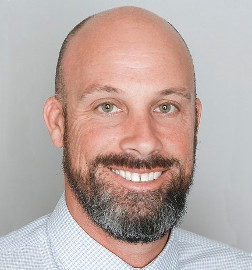
MATT JOHNER
SR. LOAN OFFICER
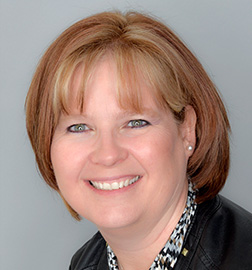
GAMBLE YEUNG
SR. LOAN OFFICER
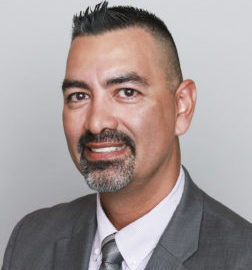
JEREMY MARTINEZ
SR. LOAN OFFICER
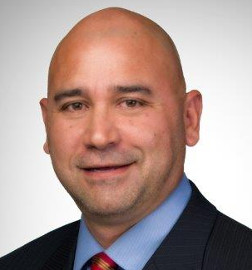
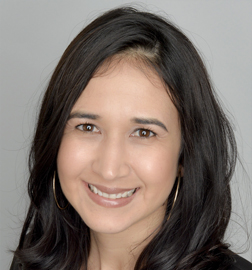
DANIELLE SIAP
ACCOUNT MANAGER
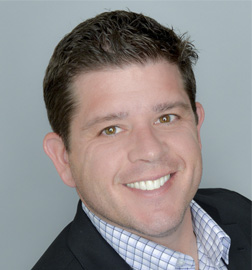
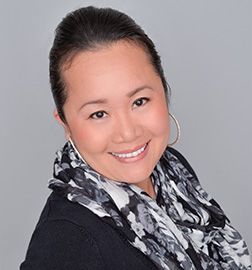
NATHALIE TRAN
SR. LOAN OFFICER
CONTACT US
WE LOOK FORWARD TO HEARING FROM YOU.

